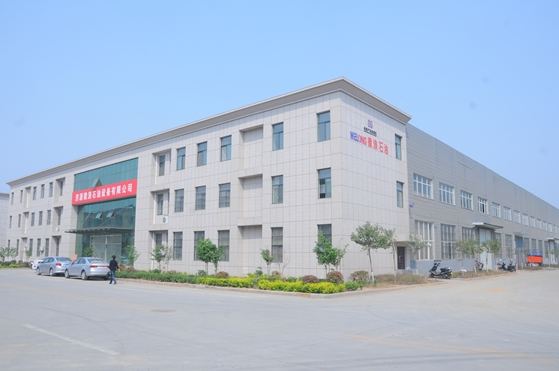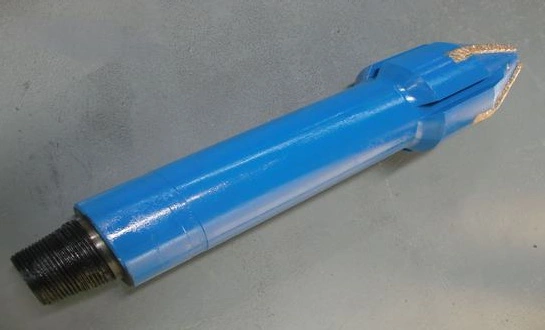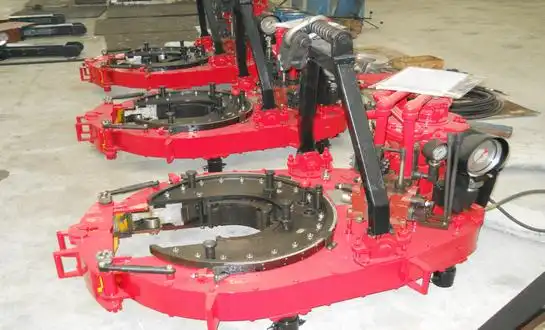Key Components and Functionality of Breakout Units
The Hydraulic Power System
A breakout unit's hydraulic power system is its central component, giving it the force it needs to move bulky tubular parts. In order to produce and regulate the enormous torque needed for breaking out connections, this system usually consists of high-pressure pumps, valves, and actuators that cooperate. Operators can apply precisely the right amount of power thanks to the hydraulic system's accuracy, which avoids overtightening and possible damage to costly drilling equipment.
Torque Tracking and Management
Sophisticated torque monitoring and control technologies are included into advanced breakout units. These devices give real-time feedback on the applied torque using cutting-edge sensors and digital displays. This characteristic is essential for preserving the integrity of threaded connections and guaranteeing that break-out and make-up procedures are carried out within predetermined torque ranges. The longevity of drilling components is increased and safety is improved by the ability to accurately adjust torque.
Keeping safe Systems for emergencies and interlocks
Oilfield operations require a high level of safety, and breakout units have a number of safety features to safeguard both people and equipment. The interlock systems, pressure relief valves, and emergency stop buttons are examples of devices that stop operations in dangerous situations. The ability to operate the breakout process remotely is another feature of many contemporary units. This lowers the possibility of accidents due to unforeseen movements or possible equipment malfunctions.
Integration with Casing Power Tongs and Other Equipment
Using Casing Power Tongs in Harmony
Breakout units and casing power tongs work together to provide a potent tool for working with large-diameter casing. The casing power tong delivers precision rotation and gripping capabilities, while the breakout unit supplies the torque required to break connections. The time and manpower needed for make-up and break-out operations are decreased by this synergy, which makes it possible to handle thick casing strings efficiently. These two pieces of equipment work in tandem to greatly improve casing running procedures' speed and safety.
Adherence to Pipe Handling Systems
Automated pipe handling systems and modern breakout units are made to work together effortlessly. Because pipes can be joined or disconnected and moved into place with little assistance from humans, this integration makes drilling safer and more efficient. Breakout unit and pipe handling system compatibility lowers the possibility of mishaps related to manual pipe handling while also increasing efficiency.
Connect with Control Systems for Drilling
When combined with central drilling control systems, advanced breakout units offer a smooth interface that improves operational effectiveness. Important information like torque values, connection times, and other performance parameters may be continuously monitored and recorded in real time thanks to this integration. Operators can maximize drilling performance and ensure sure every stage of the operation is going successfully by using this data, which is easily accessible. Additionally, the capacity to evaluate this data over time aids in anticipating possible maintenance problems before they become serious, guaranteeing that equipment stays in top working order. In addition to increasing safety, this proactive method helps maintain high standards for pipe connections, guaranteeing consistency and dependability throughout several wells or drilling operations. Early trend and inconsistency detection allows teams to resolve possible problems, cutting down on downtime and increasing overall productivity.
Applications in Various Drilling Scenarios
Drilling Activities Offshore
Breakout units are essential in offshore drilling settings when efficiency is critical and space is limited. In order to fit inside the constrained space of an offshore rig, these units are frequently made with a small footprint. Since downtime may be quite expensive in deepwater operations, the ability to swiftly and safely establish and break out connections is especially crucial. In order to survive the challenging marine environment, offshore breakout units are usually outfitted with extra corrosion-resistant characteristics.
Drilling both horizontally and directionally
Pipe handling and connection setup have become more difficult with the introduction of horizontal and directional drilling. In order to handle the particular stresses and torque needs of non-vertical wellbores, breakout units made for these applications frequently have specialized characteristics. To guarantee correct connection integrity in intricate well geometries where conventional torque calculations might not be adequate, these machines might have sophisticated torque monitoring systems.
Wells with high pressure and high temperature (HPHT)
The demands placed on drilling equipment are particularly significant in HPHT well conditions. In these situations, breakout units are designed to withstand the high temperatures and forces seen in deep, high-pressure formations. To guarantee dependable performance in difficult circumstances, these machines frequently have stronger hydraulic components, specialist materials, and improved sealing systems. These sophisticated breakout devices' accurate torque control is essential for preserving the integrity of the high-end connections utilized in HPHT wells.
Conclusion
With its many uses in a variety of drilling situations, breakout units are adaptable and crucial instruments in contemporary drilling operations. When used in conjunction with casing power tongs and other drilling tools, they improve tubular handling operations' accuracy, safety, and efficiency. Breakout units will probably see additional developments as drilling technology advance, adding more automation and intelligent features to satisfy the oil and gas industry's ever-increasing demands. Please email oiltools15@welongpost.com for more information on breakout units and other oilfield items.





